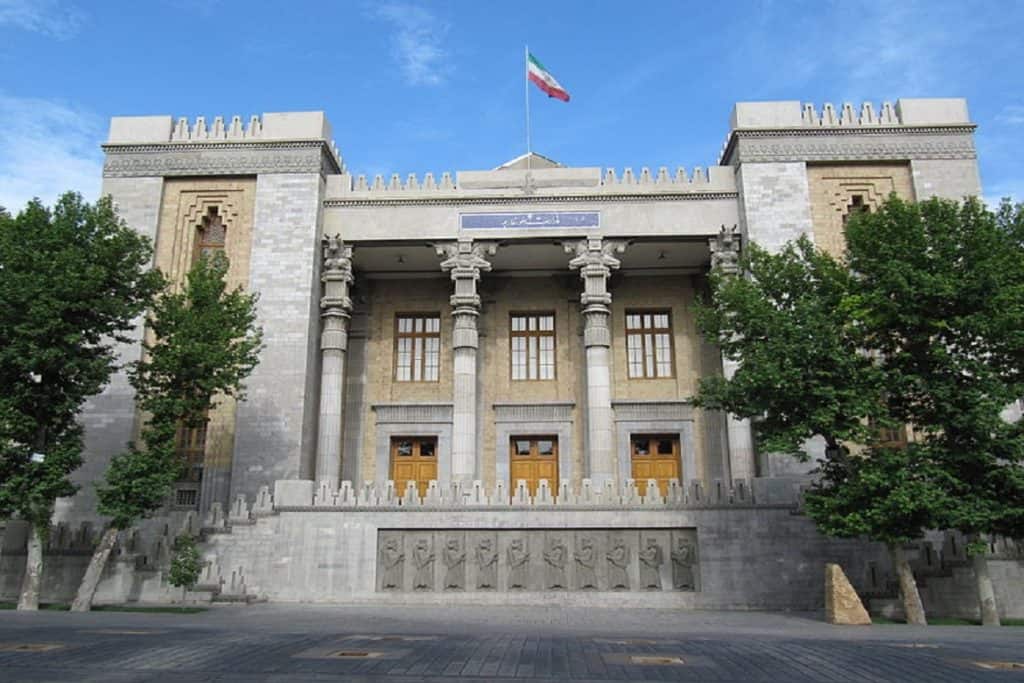By Denis Korkodinov
The US pressure on Iran motivates the Ayatollah regime to enter into new alliances with international partners.
Meanwhile Washington’s actions against Tehran create great difficulties for Moscow to expand its sphere of influence in the Middle East. Vladimir Putin’s statement that “Russia is not a fire brigade” is destroying the Iranian-Russian alliance in Syria.
It is very significant that Donald Trump is very controversial in his anti-Iranian policy. At the same time, it is surprising how rapidly things are evolving. So, the aggravation of relations between the countries occurred when the adviser on national security of the US President John Bolton on May 5, 2019 declared Washington’s intention to deploy an aircraft carrier group in the Persian Gulf.
Five days later, the Pentagon officially confirmed the information about the deployment of the Patriot missile and ground equipment against Iran. On May 19, 2019, in response to a missile attack by the US embassy in Baghdad, Donald Trump on his Twitter page publicly threatened the Iranian leadership with war. And on May 24, 2019, the White House administration sent a group of fighters to the coast of Iran and announced the deployment of 1,500 troops in close proximity to the Iranian borders.
At the same time, the American leader made it clear to Tehran that there is an opportunity to agree among themselves. Among other things, Donald Trump was not opposed when Japanese Prime Minister Shinzo Abe offered his services as an intermediary between Washington and Tehran. This allowed the Ayatollah regime to accuse the head of the White House of frivolity and even insincerity.
Meanwhile, Russia, observing the development of the American-Iranian conflict, came to the conclusion that the United States is pursuing a goal, thereby to discredit relations between Moscow and Tehran.
Nevertheless, Russia, as it were, is not against it. At least, according to the Russian leader’s statement that “Russia is not a fire brigade and cannot save everyone,” Moscow is unlikely to show great interest in maintaining strong relations with Tehran. More precisely, she is ready to sacrifice her ally for the sake of maintaining her position in the Middle East.
At the official level, the Russian leadership, of course, condemned the US policy to strengthen its military presence near the Iranian borders and warned the White House administration against attacking Tehran. However, Moscow has extremely limited resources to support the anti-Iran campaign. Moreover, the Kremlin will not be able to do anything if American troops do attack Iran.
This is due to the fact that Moscow understands that its budget simply cannot provide for the conduct of a new military campaign, especially against a deliberately aggressive adversary, the United States, a direct collision with which could lead to the use of nuclear weapons. In addition, Moscow already has a lot of problems in the Syrian province of Idlib, where the planned de-escalation regime has not yet been implemented. Participation in the new war is an inadmissible luxury, in connection with which Russia will not intervene, even if Iran is subjected to massive bombardment by the United States and its allies.
It is worth noting that the leadership of official Tehran, despite the established allied relations with Moscow, is showing distrust towards its Russian colleagues. Almost immediately after the 1979 revolution, Iranian leaders publicly defined their position in foreign policy. According to this position, the Ayatollah regime is not only against American imperialism, but also of Soviet communism. Now these anti-Soviet sentiments are projected onto Russia.
When in 2016, Moscow secured the right to use the Hamadan military base in Iran as a “jump airfield” necessary for attacking militant positions in Syria, many Iranian politicians were against. The main reason for the protest was that the Constitution of the Islamic Republic of Iran prohibits foreign states from using military bases on its territory. This caused a flurry of criticism of Moscow, which was forced to abandon the use of Hamadan, in order not to annoy its Iranian allies.
At the same time, Russia and Iran disagree about the military participation of Israel in Syria. So, Moscow is trying not to notice when Israeli aviation strikes Iranian targets in Syrian territory. Meanwhile, such a policy of non-intervention causes irritation on the part of Tehran, which expects Russia to take decisive actions against Tel Aviv.
Sooner or later, fundamental differences in Russian-Iranian relations can lead to the destruction of the alliance between countries. Waiting for this, Tehran began to search for new allies, who are unlikely to show loyalty to Moscow. In particular, the Ayatollah regime is trying to strengthen the groupings of the Hussites in Yemen, thereby entering into confrontation with the government of Hadi, with whom Moscow is in warm relations. In addition, Iran may well speak in support of the Venezuelan opposition, whose actions are aimed at overthrowing the current president of Venezuela, Nicolas Maduro.
Such threats put Russia in an extremely awkward position. Being in a formal alliance with Iran, Moscow can no longer fully rely on friendly overtures from the Ayatollah regime. At the same time, Tehran no longer shows great interest in maintaining the alliance with its Russian colleagues. In turn, a dispute between countries may in the near future be the basis for the manifestation of open hostility towards each other.
(The opinions expressed in this article are solely those of the author and do not necessarily reflect the views of World Geostrategic Insights).







